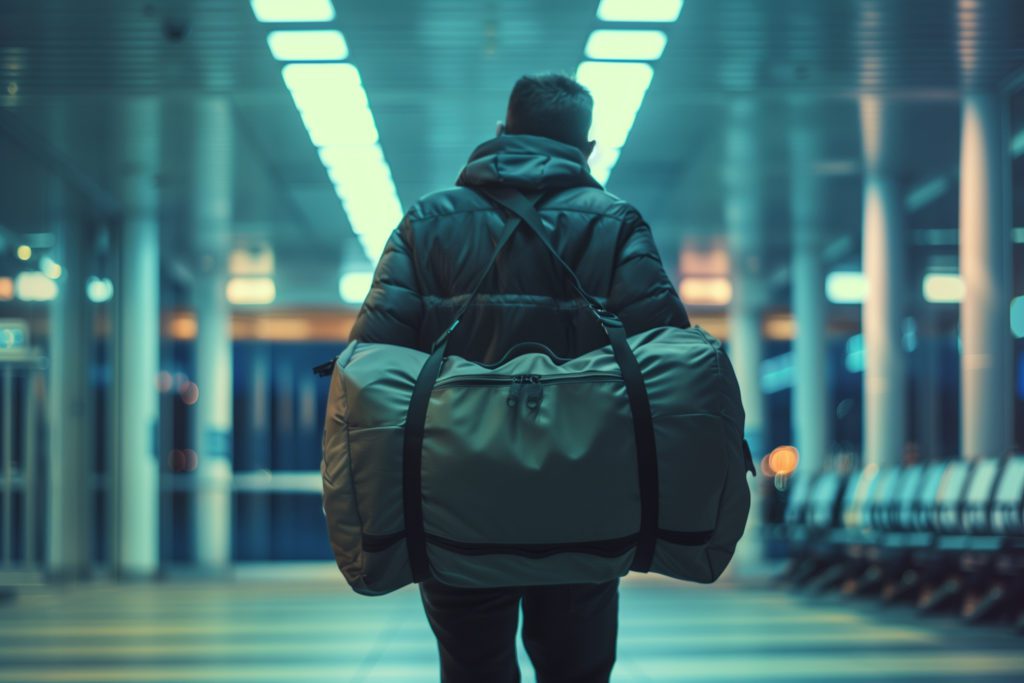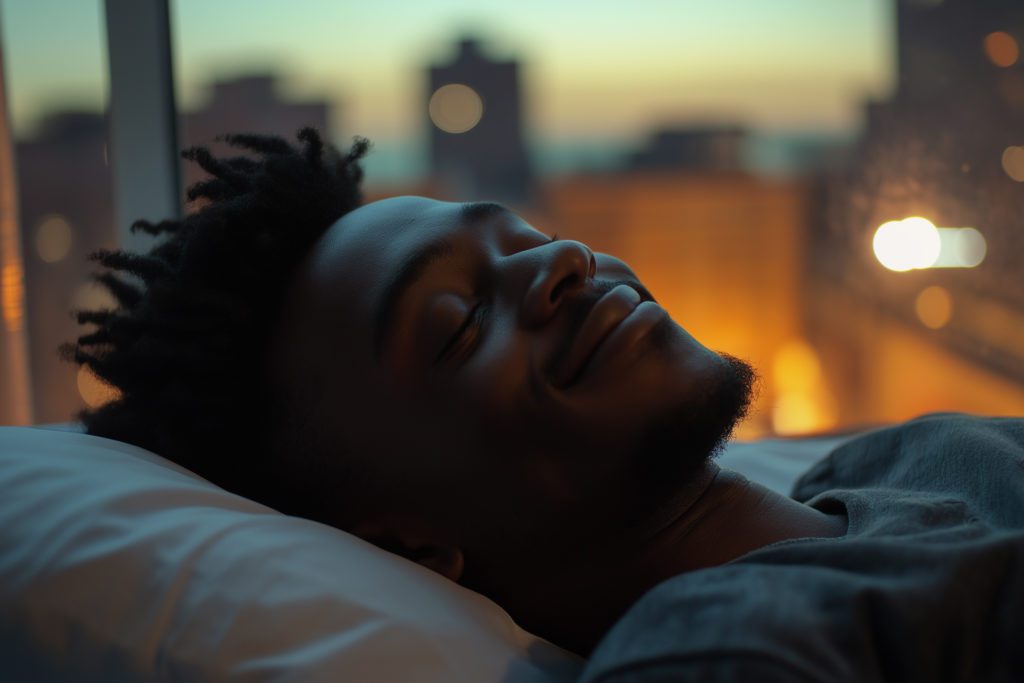
Seasonal Variations in Sleep and Their Impact on Athletes
Seasonal variations in daylight and air quality can disturb sleep. Learn how this can affect athletes and gain tips for sleeping well through each season.

Have you ever considered how the seasons affect your sleep? While everyone can feel the effects of poor sleep due to warmer nights and shorter days, athletes, in particular, may see the repercussions more than most when their poor sleep impacts their athletic performance.
While it’s not possible to change the season, it is possible to understand how each season can impact your sleep and what you can do to counteract these effects as much as possible. As a bonus, these solutions are easy to implement and will have you sleeping better—and upping your athletic performance—in no time.
Why Athletes Need Good Sleep
Sleep is a vital component of an athlete’s training regimen, no matter which sport you play.
Research has shown that sleeping 10 hours a night makes basketball players run faster in half-court and full-court sprints. Their accuracy when shooting also improved by 9%. Swimmers see improved reaction time and kick strokes, leading to faster sprint timing. Research into tennis players, as well, has shown an improvement in the accuracy of their serves from 36% to almost 42% after 10 hours of sleep.
Yet what happens if an athlete doesn’t get enough sleep?
Those who are sleep-deprived are more likely to make poor decisions and have a hard time focusing, and athletes are no exception. When athletes don’t get enough sleep, they can see decreased accuracy, reaction time, and ability. Even more, with inadequate sleep, their risk of injury or illness can increase, they may have a harder time making decisions (especially quick ones), and they become tired more quickly.
All of this data suggests that, without enough sleep, athletes cannot meet their full potential, and a significant contributor to how well you sleep as night is the season you’re in.
Why Do the Seasons Affect Our Sleep?
It’s not just the weather that is affected by the seasons—our sleep can be, too, because of these factors:
Fluctuating Temperatures
When the body goes to sleep, its internal temperature drops because the muscles are not used as much, and the autonomic nervous system (which regulates heart rate, breathing rate, digestion, and blood pressure) slows down.
This natural decline in body temperature is why it’s recommended to sleep in a cooler room (and why we can get uncomfortable if our bedroom is too hot). To promote good, deep sleep, it’s recommended to sleep in a bedroom that is between 60 to 70 degrees Fahrenheit; if the temperature rises above this, it may trigger the body to wake up.
As expected, it’s easier to keep your bedroom at a cooler temperature in the winter when the temperatures outside are cooler. Because of this, you may toss and turn more as the temperature increases outside, and it could be because your room isn’t cold enough to support your sleep.
Changing Amounts of Daylight
Daylight hours are always changing, whether it’s incrementally more daylight as we approach summer or declining daylight as winter sets in. While these changes are nowhere near as dramatic as what you would experience when changing time zones, they can still influence your circadian rhythm.
Your circadian rhythm is your body’s internal clock that runs on a 24-hour cycle, and one of its primary focuses is your sleep-wake cycle.
When the sun goes down, darkness triggers your body’s production of melatonin, the sleepiness hormone, which prepares you for bed. However, since the hour that the sun sets varies by season, so does the amount of melatonin your body has produced by bedtime.
Too little melatonin can be a problem in the summer when sunset occurs later. Since the sun goes down later, your body does not start releasing melatonin until later, which means that your body may not have produced enough melatonin by bedtime to feel tired enough to sleep. Without enough melatonin, you may find yourself lying awake.
Beyond melatonin production, the changing hours of daylight can also influence your vitamin D intake. The sun is our most natural source of vitamin D, but in the winter, when the days are shorter and the weather makes you want to stay inside, you may not get enough vitamin D. This deficiency has been associated with fewer hours of sleep, a higher risk of sleep disorders, and overall a more restless night of sleep.
Drier Air
In the cold weather months, the air often becomes drier from the cold outside air and heating systems. Dry air can make breathing more difficult at night, reducing your quality of sleep.
Allergies
If you’re an allergy sufferer, high allergen counts can affect your sleep. Whether you’re allergic to tree pollen or ragweed, these allergens can make breathing difficult if you’re congested. Even more, any coughing and sneezing at night can make it hard to relax, further impacting your sleep.
Allergies can also increase the risk of sleep-disordered breathing events, such as the stopped breathing seen in those with obstructive sleep apnea. These events can lessen your sleep quality, making you feel tired and unrested even if you slept all night.
How Athletes Can Manage Their Sleep Each Season
Even if the seasons change, your sleep must remain high-quality if you don’t want your athletic performance to suffer.
Here are some tips for how to prioritize your sleep, no matter the season:
- Keep the temperature low. Consider dropping your thermostat to between 60 and 70 degrees Fahrenheit in warmer months. You want it cold enough so you’re not tossing and turning but not too cold where you’re shivering.
- Soak up the sun. Try to get outside as much as possible in the winter months to soak up some vitamin D. If the weather won’t allow it, even sitting by a window during the day can help improve your sleep quality.
- Use a humidifier. When the air is dry in the winter, consider using a humidifier to add some humidity. Your nasal passages and eyes will be less irritated, and you’ll be able to breathe more easily, promoting a better night of sleep.
- Stick to a schedule. When you can’t rely as much on sunlight to increase your melatonin levels, keep your sleep schedule consistent, as that can make up for it.
- Take a bath. A warm bath a few hours before bed can help lower your body temperature, getting to a point where it’s ready for bed.
Athletes rely on their bodies and minds for their superior performance on the field, in the training room, on the court, etc. No matter where they need to be, sleep is crucial for ensuring that, when it’s go time, their body can handle each task thrown its way.
While the seasons can affect our sleep, understanding these effects can go a long way in ensuring you know how to counteract them so that, no matter the season, you can continue getting enough quality sleep.

Written by
Jessica G
Medical writer freelancer who has written hundreds of articles on varying topics. Masters of Engineering degree in Biomedical Engineering.
Download Pillow
Get help
Press & News
Legal
Connect
X (Twitter)
Company
Copyright © Neybox Digital Ltd.



